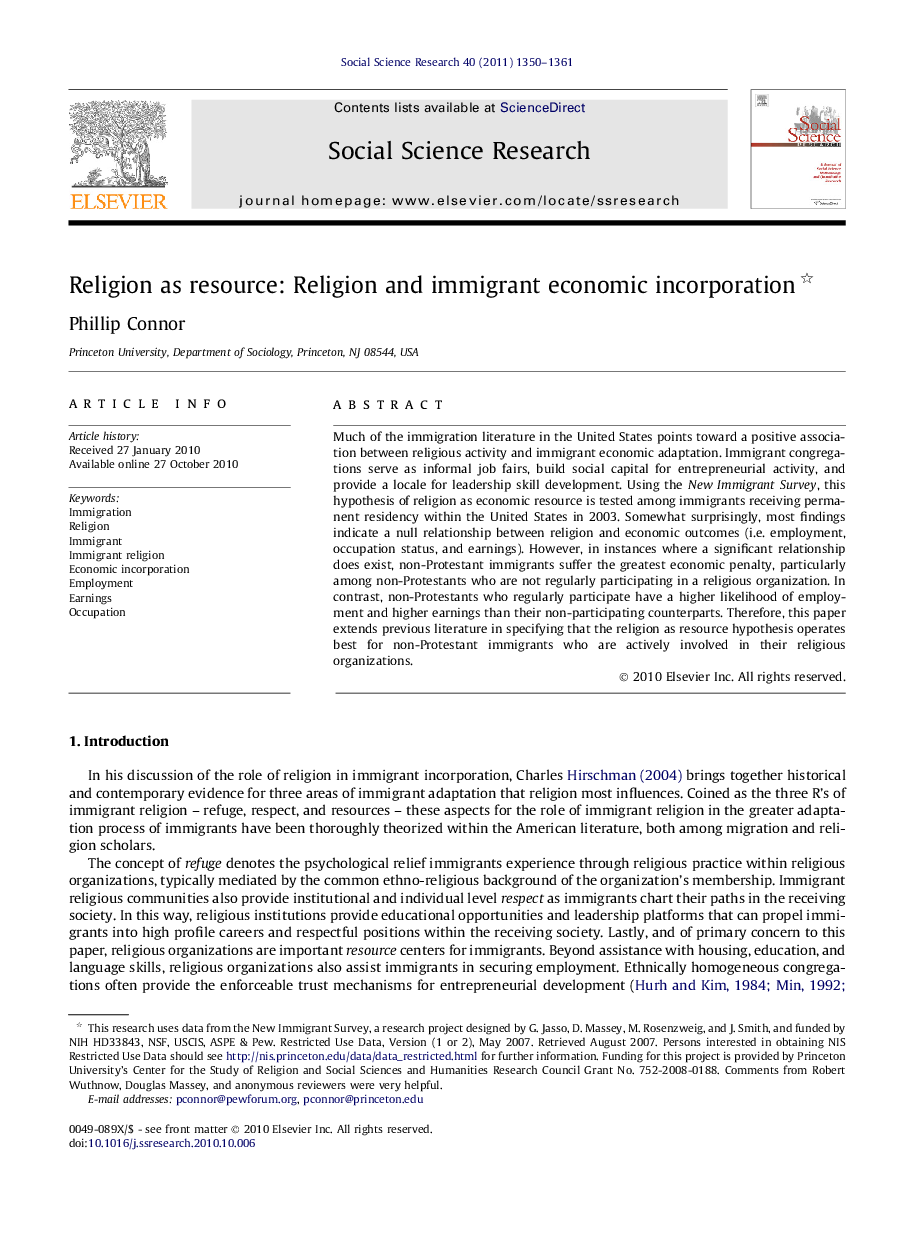| Article ID | Journal | Published Year | Pages | File Type |
|---|---|---|---|---|
| 956093 | Social Science Research | 2011 | 12 Pages |
Much of the immigration literature in the United States points toward a positive association between religious activity and immigrant economic adaptation. Immigrant congregations serve as informal job fairs, build social capital for entrepreneurial activity, and provide a locale for leadership skill development. Using the New Immigrant Survey, this hypothesis of religion as economic resource is tested among immigrants receiving permanent residency within the United States in 2003. Somewhat surprisingly, most findings indicate a null relationship between religion and economic outcomes (i.e. employment, occupation status, and earnings). However, in instances where a significant relationship does exist, non-Protestant immigrants suffer the greatest economic penalty, particularly among non-Protestants who are not regularly participating in a religious organization. In contrast, non-Protestants who regularly participate have a higher likelihood of employment and higher earnings than their non-participating counterparts. Therefore, this paper extends previous literature in specifying that the religion as resource hypothesis operates best for non-Protestant immigrants who are actively involved in their religious organizations.
